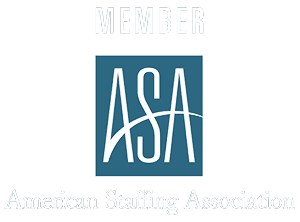As a staffing agency in charge of payroll, you know how complex payroll compliance can get. According to Deloitte, 88 percent of organizations either have a payroll strategy or are developing one – highlighting just how crucial proper payroll management is.¹
For staffing agencies, there are always different tax rules and filing deadlines. Now, add the challenge of a high volume of temporary employees, each with different payroll benefits; it means you have to be thorough with your payroll process. So, how do you turn these challenges into an opportunity to showcase your strength by being proactive? Let us guide you.
Common Payroll Compliance Challenges in Staffing
Learn how complex payroll compliance is so you can act before it’s too late. Here are major challenges in payroll compliance and their implications for you:
Misclassification of Employees vs. Contractors
Worker classification can be quite complex, and this complexity has several reasons.
Various state labor departments have specific standards for classifying workers, including the ABC Test used in states like California, Massachusetts, and New Jersey. This test helps determine whether a worker should be classified as an employee or an independent contractor based on three key factors:
- The worker’s autonomy: The degree of control the worker has over how they perform their job.
- Nature of the work: Whether the work performed is outside the usual course of business for the employer.
- Independent business: If the worker has an independent business in the same field as their work.
These criteria ensure that workers are classified correctly, reflecting their working conditions and relationships with employers.
While the IRS and state agencies take classification seriously, they also provide guidance through programs like the Voluntary Classification Settlement Program.² This demonstrates their commitment to helping employers maintain proper classification. Getting classification right from the start strengthens your relationships with workers and clients while ensuring compliance.
Multi-State Payroll Compliance
Managing payroll across state lines requires attention to detail, especially with the rise of remote work. For example, when an employee resides in New York but works remotely for a California-based company, both states’ tax requirements need consideration. New York requires state tax withholding for work performed within the state, regardless of where the employer is based.³
States maintain specific standards for payroll compliance to protect both employers and workers. Connecticut, for instance, classifies certain payroll violations as class D felonies, highlighting why robust compliance systems are essential. Many staffing firms find that implementing comprehensive payroll software helps them navigate these multi-state requirements effectively.
Wage and Hour Compliance
Staffing agencies have a tough job making sure employees are paid accurately for overtime, following minimum wage laws, and keeping track of hours worked. Since workers are often placed in different industries and roles, it’s easy for mistakes to happen with timekeeping or wage calculations. This is especially true when dealing with employees who work for various clients and have different schedules.
Failing to adhere to wage and hour laws can lead to serious consequences for employers. Employees may file back pay claims, which can result in hefty penalties. Under the Fair Labor Standards Act (FLSA), violations can incur fines of up to $1,000 for each offense. These penalties underscore the importance of diligent compliance with wage and hour regulations.
High Volume of Temporary Employees
Managing a large, dynamic workforce with employees having varying assignments, pay structures, and schedules can be a logistical challenge. It gets even more complicated when you factor in each worker’s varying tax rates, benefits eligibility, and compliance requirements.
Payroll processing errors can have serious consequences. Simple administrative mistakes, like missed payments, incorrect tax filings, or delays in issuing checks, can lead to financial penalties and increased scrutiny from regulators. For instance, if you don’t adjust payroll when a worker moves from part-time to full-time, you might end up underpaying wages or misreporting taxes.
These kinds of errors create compliance issues and lead to higher turnover rates. For temporary workers who rely on consistent income, even small payroll delays can damage their trust in your agency.
Keeping Up with Regulatory Changes
Tax laws, wage requirements, and classification criteria are constantly evolving at federal, state, and industry levels. Staying proactive about these changes is essential to ensure your organization remains compliant and operates smoothly.
Keeping up with regulatory updates lets you avoid potential challenges such as penalties or audits. For instance, if minimum wage laws change and adjustments aren’t made promptly, underpaid workers may seek back pay to address discrepancies. Additionally, staying informed helps you manage costs effectively—updating systems, revising contracts, and retraining staff can be streamlined with planning.
Moreover, maintaining compliance protects your budget and strengthens your firm’s reputation. Clients and employees are more likely to trust an organization committed to following regulations and prioritizing fair practices.
Practical Strategies for Ensuring Payroll Compliance
Here’s how to ensure that your staffing agency stay compliant with payroll regulations:
1. Conduct Regular Audits
Here’s the thing about payroll: it is multifaceted. When one regulation is changing, another one is getting new conditions, and you need to stay compliant. But how do you do that if you don’t know about these changes? Regular audits help you identify and correct discrepancies in worker classification, wage calculations, and tax filings before they escalate into bigger issues.
For example, an audit can reveal that a worker in a state with updated minimum wage or overtime requirements needs immediate pay adjustments. Regular auditing isn’t just about mitigating against penalties; it builds trust with clients and employees.
Payroll Audit Checklist
A systematic approach to auditing helps catch potential issues before they become problems. This checklist covers the essential areas your staffing firm should review regularly to maintain compliance.
Worker Classification Review
- Current employee vs contractor status
- State-specific classification requirements
- Work arrangement documentation
Multi-State Compliance Check
- Worker location verification
- State tax withholding rates
- Local tax requirements
Wage and Hour Verification
- Overtime calculations
- Minimum wage compliance
- Break time tracking
2. Use Payroll Management Software
We get it—payroll is difficult to get right. There are minimum wages to adhere to, different tax rules to follow and you need to pay workers on time. But you don’t have to do this by yourself.
Using payroll management software with multi-state compliance lets you automate tax filings and compliance checks, so you don’t make errors due to changing tax rates or incorrect withholdings. Automated compliance alerts will notify you when tax laws, wage requirements, and other regulations change.
3. Train Your Team
While your payroll team and HR personnel should know how to stay compliant with payroll, it is better to regularly train them to be versed in key regulations such as the FLSA, state-specific wage laws, and classification criteria. Holding regular workshops or training programs helps them understand how these regulations apply across different worker categories and jurisdictions.
This could be as simple as hosting a workshop or providing access to online courses that can help your team stay informed about new changes. These workshops provide opportunities to address common questions, review case studies, and reinforce best practices, ensuring that everyone is stays on the same page on compliance standards.
4. Monitor Regulatory Changes
If you wait till you get fined to start thinking about payroll compliance, you’re planning a recipe for disaster. One of the best ways to avoid penalties is to subscribe to updates from reputable organizations like the Society for Human Resource Management (SHRM) or the Department of Labor (DOL).
Start by using compliance tracking software to get real-time updates on changes in payroll regulations. But don’t stop there, consider following industry news, joining relevant forums, and attending webinars focusing on payroll and labor compliance.
5. Seek Professional Help
If payroll compliance is more than your team can handle, partner with a payroll service provider. Whether outsourcing tax filing or setting wage benchmarks, don’t hesitate to bring in outside help.
Payroll service providers specializing in staffing agencies allow you to focus on bridging clients and candidates while leaving the more specialized payroll tasks to experts. The extra support they provide might just be the difference in your payroll compliance.
Don’t default in payroll compliance—be proactive
By now you already know the challenges and implications of payroll compliance on your firm. But that’s not enough without the right strategy in place. Stay proactive—whether through regular audits, using payroll software, monitoring regulatory changes, or seeking professional help. Don’t wait to implement these strategies today to safeguard your business for tomorrow.
How can you do that? At Signature Back Office Solutions, we specialize in connecting staffing firms with the right payroll compliance system. Let us help you find the best payroll strategy while you focus on your core business.
References
- 2023 Payroll Survey Report.” Deloitte, www2.deloitte.com/content/dam/Deloitte/us/Documents/human-capital/us-apa-payroll-congress-survey-report.pdf.
- Voluntary Classification Settlement Program | Internal Revenue Service. www.irs.gov/businesses/small-businesses-self-employed/voluntary-classification-settlement-program.
- Withholding Tax Requirements. 16 Dec. 2022, www.tax.ny.gov/bus/wt/whtax_require.htm.





